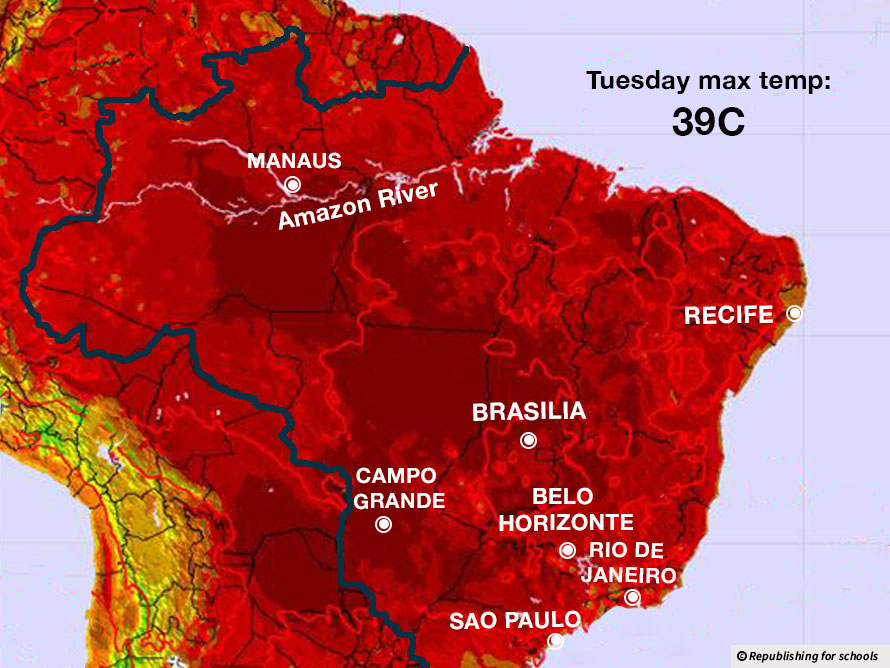Will today’s children have space to live? Brazil is the latest country to suffer an unprecedented heatwave. Experts warn that some parts of the world will become uninhabitable.
Red alert as Brazil suffers unbearable heat
 Hellish hotspot: Parts of Brazil have been just 2C cooler than the Sahara desert.
Hellish hotspot: Parts of Brazil have been just 2C cooler than the Sahara desert. Glossary
Rio de Janeiro - A seaside city in Brazil with a population of 6.7 million.
Lucifer - In Christianity, a name for the devil.
Meteorology - The science dealing with the atmosphere and its phenomena, including both weather and climate.
Anthropogenic - Environmental change caused by people.
Death Valley - A valley in California in the Mojave Desert. It is the hottest place on Earth in the summer.
Balkans - A region of southern Europe, south of Austria and Hungary. It was traditionally seen as the meeting point between the Christian and Muslim worlds.
